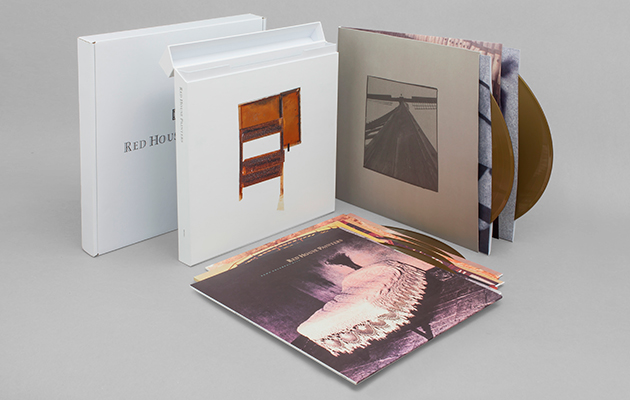Mark Kozelek is virtually alone among music mid-lifers. Over 25 years into his career, his current records are considered as vital as the Red House Painters albums with which he made his name. Rarer still is that this new material engages deeply with his past without attempting to relive it, or lapsing into its defining self-pity. The relationship between now and then remains complex: Sun Kil Moon’s 2012 Among The Leaves saw Kozelek griping about his audiences – middle-aged blokes who turn up to hear ancient Painters songs. If there’s any reconciliation between the two, it’s in the form of gratitude: 2014’s opus Benji referenced getting his 4AD deal from Ivo Watts-Russell in the early ‘90s. “He signed Red House Painters when we couldn’t draw 20 people,” said Kozelek.
Decades before the Kozelek we know today, the waspish essayist, he was a depressed Ohio kid who had been through rehab at 14. After moving to San Francisco in the late ‘80s, he met his Red House Painters bandmates and forged his forlorn Midwestern gothic built on smoky coils of guitar. A 20-track cassette demo eventually made its way to Watts-Russell via American Music Club’s Mark Eitzel. Kozelek’s music came from a deeply lonely place, but he wasn’t plumbing this furrow alone. There was Low in Duluth, Idaho in California, Codeine in New York and Bedhead in Texas – the “slowcore” movement was fittingly isolated. But no-one else had a frontman like Kozelek, a Morrissey fan of equal melodrama and self-loathing that he refuted any comparison. “Morrissey is funny, charming and intelligent,” he said in ‘93. “I am none of those things.” He is openly misanthropic on the Painters’ debut, 1992’s Down Colorful Hill (six cleaned-up songs from the demo tape), rendering a break-up in obsessive excess on “Medicine Bottle”, and declaring, “This dictionary never has a word for the way I’m feeling” on the bleak “Japanese To English”. Bass lines prowl gently, while Kozelek plays down-tuned, disquieting guitar. But there’s humour on the Lemonheads-jaunty “Lord Kill The Pain”, and a single compassionate note: the warm “Michael”, a study of a lost soul that prefigures his current approach.
The prospect of wider attention begat paranoia and cruelty on the Painters’ next record, a mass of music divided across two self-titled albums. The first pushes the debut’s sound in two opposing directions: sentimental (“Grace Cathedral Park”) and dirt-kicking (“Funhouse”). But it’s still the sad centre where Red House Painters thrive: understandably, “Katy Song” – a tribute to an unsuccessful relationship with a woman who offers escape from his “cold solitary kingdom” – remains his calling card. As if to underline Katy’s importance, it’s sandwiched by “Down Through”, where he admits domestic violence, and the equally spiteful and beautiful “Mistress”. But RHP II sounds like the wound bled dry. It’s grandiose and Kozelek’s lovelorn lyrics become obsessive: “Helicopter” imagines him dying with a woman he hasn’t met yet. By the penultimate “Blindfold”, he’s screaming with rage; closing with a Crazy Horse-styled “Star Spangled Banner” feels perverse.
1995’s Ocean Beach is more polished and expensive-sounding than its predecessors. The reverb is gone from Kozelek’s vocals, and he even attempts balladeering on “Shadows”. There are just two standout songs – acoustic devotional “Summer Dress” and “Drop”, about his inability to reciprocate love. It would become Red House Painters’ final album for 4AD, the relationship between Kozelek and Watts-Russell severed because the songwriter wanted to record covers and unwieldy solos.
In 1993, Kozelek declared that he didn’t want to sell tons of records and be on MTV: “respectability and recognition don’t interest me.” But Red House Painters soon signed to John Hughes’ Island imprint, Supreme, for $100,000 and sold their cover of The Cars’ “All Mixed Up” to a Gap ad. Although their comparative mainstream success was a brief cautionary tale, it’s hard to begrudge the notion of this hypnotic, quiet music being heard, however brief their moment in the sun.



